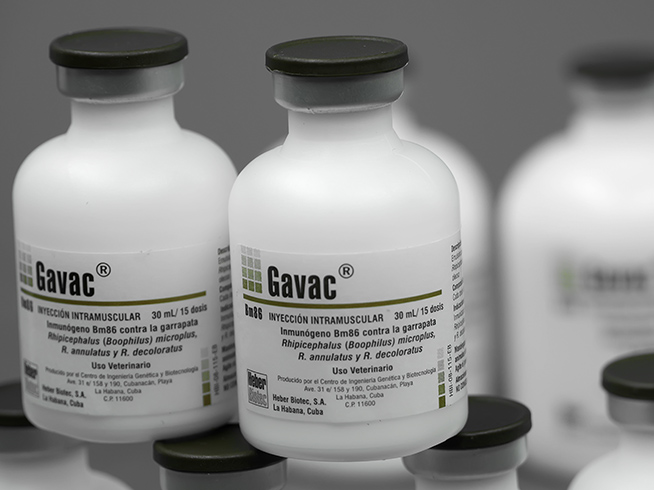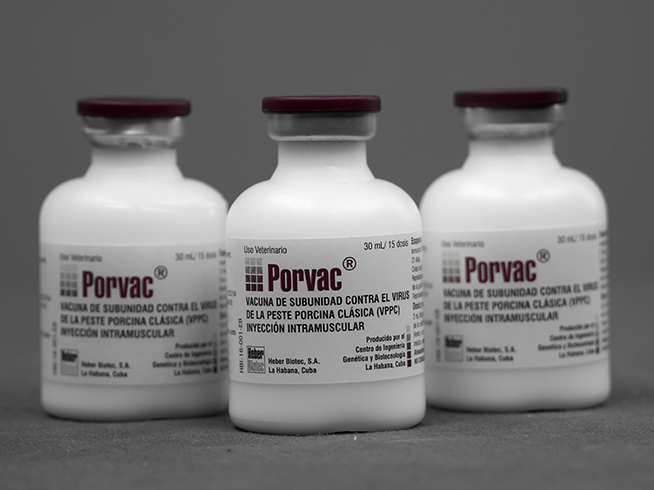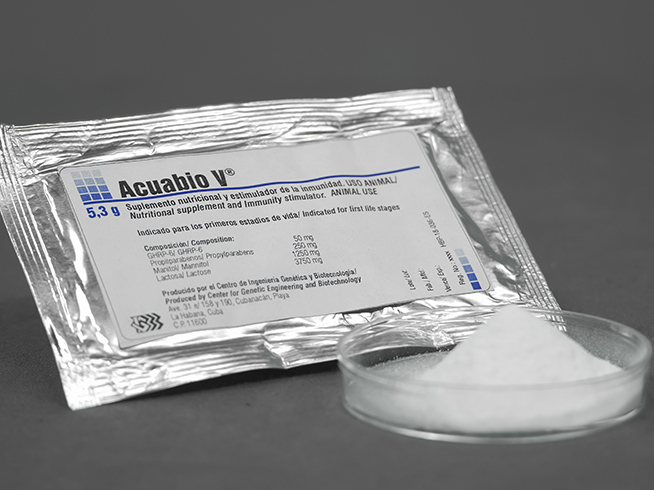
Gavac® is immunogen against the Rhipicephalus (Boophilus) microplus tick of cattle.
The programs for the integrated control of the cattle tick are effective strategies that are enhanced with the use of Gavac®. This immunogen controls infestations and acts against ticks resistant to chemical ticks.
Gavac® is friendly to the environment. Reduces contamination by residual acaricides in food and the environment. It does not interfere with the action of other medications or vaccines. Reduces diseases and deaths in cattle due to haemoparasites. Implementing, extending and consolidating agroecological alternatives for tick control is a strong commitment to reduce costs in the livestock industry and public health, and increase the quality of life and animal, human and environmental health.
Oily emulsion containing the Bm86 antigen from Rhipicephalus (Boophilus) microplus .
- .
Gavac® has multi-dose presentations in high-density polyethylene bulbs with the following volumes:
- 100 mL containing 50 doses
- 50 mL containing 25 doses
- 30 mL containing 15 doses
Each 2 mL dose contains 100 µg of Bm86 antigen in Montanide ISA 50 V2 oil adjuvant.
It should be stored at 2 to 8 °C. Do not freeze.
Immunization of cattle against ticks of the genus Rhipicephalus (Boophilus) microplus sp. from the month of birth.
Immunization of cattle with Gavac® should be part of an integral tick control program, where the application of baths with chemical acaricides or other ticks, is done from the rate of infestation in the mass under the program.
Administer 2 mL intramuscularly (IM) deep in the neck region near the shoulder blades or in the gluteal region, in the area of large muscle masses, using needles 16 to 18 gauge by 1 to 1½ inches, in any gender or race and from the month of birth.
Administration scheme
- Week 0: first dose
- Week 4: second dose
- Reimmunization: one dose every 6 months from the first immunization
The Bm86 antigen present in Gavac® is processed by the immune system of the immunized bovine, which generates a response fundamentally mediated by antibodies. When ticks feed on bovine blood, they ingest these antibodies, which bind to the Bm86 protein present in the tick intestine. This causes irreversible lesions in the intestinal wall of the ectoparasite, which are manifested in the reduction of ticks that complete the life cycle, affecting oviposition, fertility and viability of larvae. These damages have a cumulative effect on generations of ticks, which cause the gradual reduction of their population in animals and pastures to levels that do not affect animal health or production.
It does not interfere with the action of other vaccines or medicines.


